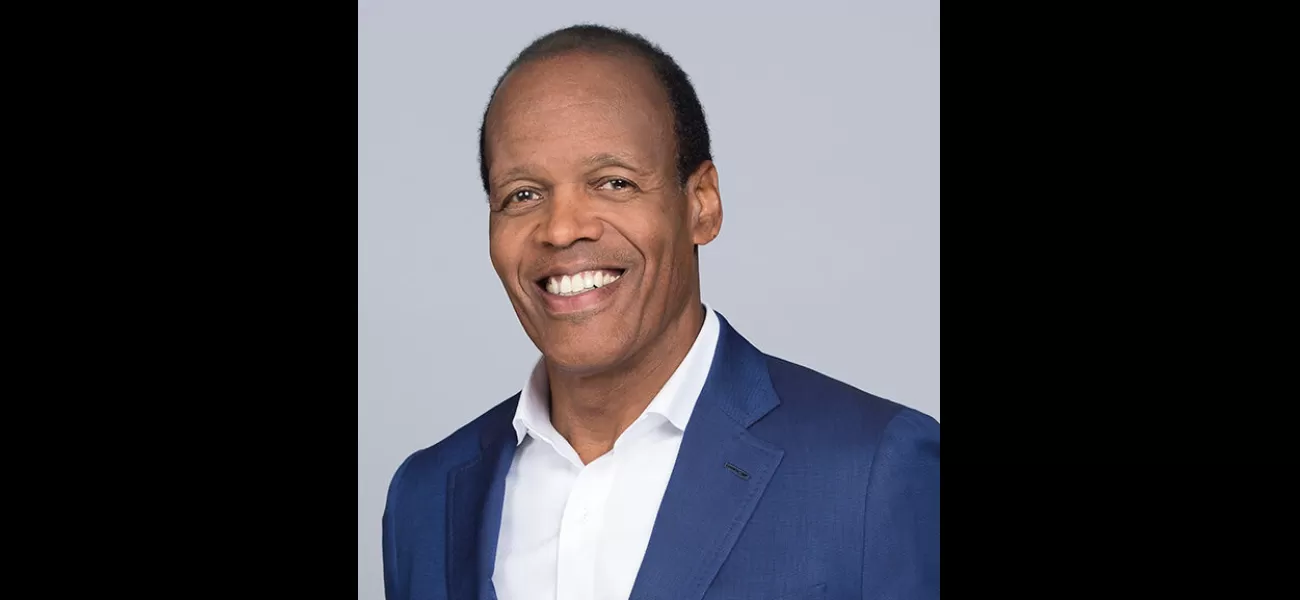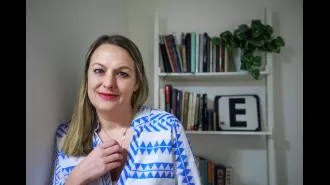Pelton works towards greater equality for African Americans in Boston.
Lee Pelton, Director of the Boston Foundation, is working to address the city's wealth gap through the Greater Boston Partnership in 2022.
February 4th 2024.

Lee Pelton, the director of The Boston Foundation, is on a mission to address the long-standing issue of wealth disparity in the city. According to a report by Boston Magazine, in 2022, the foundation launched the Greater Boston Partnership to Close the Racial Wealth Gap. This initiative is not a new concept, but it is on a much larger scale than previous efforts.
Symone Crawford, an executive director at the Massachusetts Affordable Housing Alliance and a member of the partnership, explained to the magazine, "It's new in the sense that we have more people at the table and more decision makers who can, hopefully, create real change." Pelton, whose viral 2020 reflection on the murder of George Floyd drew inspiration from James Baldwin, shares his motivation for tackling this issue, saying, "Not everything that is faced can be changed, but nothing can be changed until it is faced."
This sentiment is also reflected on the partnership's website, which states, "With a data-informed and mission-driven approach to advance racial and economic equity, the Wealth Gap Partnership brings together leaders from housing, finance, non-profits, philanthropy, and the civic sector to develop strategies that support, strengthen, and expand affordable homeownership, ultimately building intergenerational wealth for communities of color."
Pelton, who often quotes historical figures due to his past role as the president of Emerson University, strongly believes that changing the way wealth is created is crucial to improving the city's fortunes. He uses the analogy of a game of Jenga to illustrate his point, stating, "You pull out one block, and it causes stress. You pull out another block, and it causes more stress. Pull out too many blocks, and it leads to trauma. This is what we're seeing in these communities. They lack the building blocks for wealth and well-being."
In this way, Pelton argues that health is a form of wealth. This was supported by a study conducted by the Boston Public Health Commission, which found that the average life expectancy in Roxbury, a predominantly Black neighborhood, is 69 years, compared to 92 years in the affluent and mostly white Black Bay.
However, some, like Luc Schuster, the executive director of Boston Indicators at The Boston Foundation, warn against expecting too much from one initiative, no matter how significant it may be. "We need to be cautious about over-promising the impact of one local effort in meaningfully closing the large and multigenerational racial wealth gap in Greater Boston," Schuster stated, before adding, "But that should not discourage us from continuing to work towards this goal." Pelton understands that the true measure of success for this initiative will be if it continues even after he is no longer leading the foundation. He remarks, "The ultimate success of this program is if it outlasts my time here."
As reported by Boston News 25, Pelton sees housing as a crucial aspect of addressing wealth disparity in the city. He explains, "For most individuals and families, it is still the primary means of accumulating wealth. It is a way to build wealth." He also acknowledges that some people's perceptions of Boston may be influenced by the popular HBO documentary series "Murder In Boston: Roots, Rampage, and Reckoning." However, he believes that the city is changing for the better, stating, "What gives me hope about Boston is that it continues to evolve. This is not the same city it was 50 years ago during the 1974 busing crisis. We have made significant progress."
Symone Crawford, an executive director at the Massachusetts Affordable Housing Alliance and a member of the partnership, explained to the magazine, "It's new in the sense that we have more people at the table and more decision makers who can, hopefully, create real change." Pelton, whose viral 2020 reflection on the murder of George Floyd drew inspiration from James Baldwin, shares his motivation for tackling this issue, saying, "Not everything that is faced can be changed, but nothing can be changed until it is faced."
This sentiment is also reflected on the partnership's website, which states, "With a data-informed and mission-driven approach to advance racial and economic equity, the Wealth Gap Partnership brings together leaders from housing, finance, non-profits, philanthropy, and the civic sector to develop strategies that support, strengthen, and expand affordable homeownership, ultimately building intergenerational wealth for communities of color."
Pelton, who often quotes historical figures due to his past role as the president of Emerson University, strongly believes that changing the way wealth is created is crucial to improving the city's fortunes. He uses the analogy of a game of Jenga to illustrate his point, stating, "You pull out one block, and it causes stress. You pull out another block, and it causes more stress. Pull out too many blocks, and it leads to trauma. This is what we're seeing in these communities. They lack the building blocks for wealth and well-being."
In this way, Pelton argues that health is a form of wealth. This was supported by a study conducted by the Boston Public Health Commission, which found that the average life expectancy in Roxbury, a predominantly Black neighborhood, is 69 years, compared to 92 years in the affluent and mostly white Black Bay.
However, some, like Luc Schuster, the executive director of Boston Indicators at The Boston Foundation, warn against expecting too much from one initiative, no matter how significant it may be. "We need to be cautious about over-promising the impact of one local effort in meaningfully closing the large and multigenerational racial wealth gap in Greater Boston," Schuster stated, before adding, "But that should not discourage us from continuing to work towards this goal." Pelton understands that the true measure of success for this initiative will be if it continues even after he is no longer leading the foundation. He remarks, "The ultimate success of this program is if it outlasts my time here."
As reported by Boston News 25, Pelton sees housing as a crucial aspect of addressing wealth disparity in the city. He explains, "For most individuals and families, it is still the primary means of accumulating wealth. It is a way to build wealth." He also acknowledges that some people's perceptions of Boston may be influenced by the popular HBO documentary series "Murder In Boston: Roots, Rampage, and Reckoning." However, he believes that the city is changing for the better, stating, "What gives me hope about Boston is that it continues to evolve. This is not the same city it was 50 years ago during the 1974 busing crisis. We have made significant progress."
[This article has been trending online recently and has been generated with AI. Your feed is customized.]
[Generative AI is experimental.]
0
0
Submit Comment





